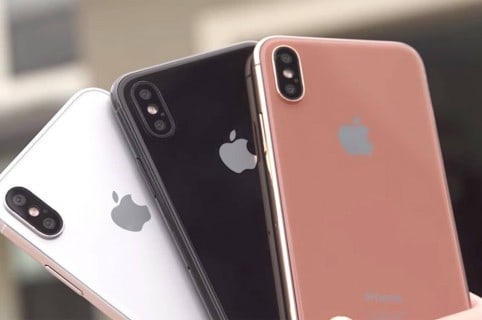
Mobile security attacks have skyrocketed this year. There has been a 50% increase in cybercriminals targeting smartphones. Although an iPhone has some formidable security features, it can be breached. Today’s cyber attackers have a multitude of tools at their disposal that they can employ to infiltrate your iPhone’s security. Here are ten ways to boost your iPhone’s security.
1. Keep Your iPhone Updated
Updates are the first line of defense when it comes to protecting your iPhone. Cybercriminals are constantly on the lookout for vulnerabilities in the iPhone’s operating system. Once they find an opening, they develop a plethora of malware tools to exploit the loophole. A device that is behind in updates will be easier to hack and take control of. Updating your iOS on time will patch these openings and lockout hackers. To get the latest versions, turn on the automatic update settings.
2. Use a Strong Password
Instead of using a four-digit pin, switch to a longer and stronger password. Short passwords can easily be cracked and bypassed. A person may observe you entering the code and cram the numbers, or they may predict or guess the code. Once inside your iPhone, they can access everything from your messages, photos, documents to emails. To build a stronger password, use a combination of letters, digits, and symbols. Just make sure you can remember the password you’ve set.
3. Turn on Two-Step Verification
Two-step verification is an improved layer of protection designed to makes sure that nobody can access your account even if they have your password. You can utilize it for Apple ID and iCloud. The latest iOS versions come with the newer and more advanced two-factor authentication model. Instead of sending an unencrypted four-digit SMS to your iPhone, a secure six-digit code is automatically displayed on a trusted device that you have registered. You can then use this code to log in.
4. Use Touch ID or Face ID on iPhone
Utilizing Touch ID and Face ID can help improve your iPhones security. With these security measures in place, it will be harder for someone to unlock your phone when you leave it somewhere, or it gets stolen. For increased security, combine these biometric security features with a passcode.
5. Secure Your Lock Screen Notifications
Lock screen notifications can give away a lot of information. If you aren’t near your phone, a snoopy person can view your messages, emails, and app information just by looking at your screen. To avoid giving away any sensitive information, hide incoming notifications.
6. Disable Siri on the Lock screen
Although Siri is a great personal assistant, it can expose some information that you would prefer to remain confidential. A hacker can manipulate it to get to your private data, or even unlock your phone, without having to enter a passcode. Fortunately, you don’t have to disable this helpful smart assistant completely. Just change the settings to prevent it from activating from a lock screen.
7. Make Encrypted iPhone Backups
When you sync your iPhone with your personal computer, your data can be accessed by anyone who uses your PC. They can find your passwords, contacts, location, and other sensitive information. To stay safe, encrypt every backup. You can do this by connecting to iTunes and activate the Encrypt iPhone backup option by checking the box and setting a password. For anyone to access the backup, they’ll need to enter that password.
8. Don’t Jailbreak Your iPhone
Although it’s tempting to jailbreak your phone and run some unauthorized apps, it isn’t worth the risk. There are many downsides that come with modifying your iOS, and the major one is insecurity. A jailbroken device is vulnerable to attacks as you won’t be able to receive the latest software updates. You may also end up installing unauthorized apps that are malicious.
9. Adopt Safe Browsing Habits
When browsing, be careful of the sites you visit. Some websites have been exploiting loopholes in iOS and installing infected files on devices. Although most of these security holes are being plugged, sophisticated hacking techniques continue to emerge. When browsing, confirm any link before clicking, don’t download attachments from unknown sources, deny apps the permissions to access your data, and disable cookies in your browser.
10. Use a VPN
To mask your online identity, get a virtual private network tool. This program encrypts your internet traffic on each end, preventing hackers from accessing your data. Whether you are accessing a private or public network, you can rest assured that cybercriminals won’t intercept your data at any point.
Summary
Today, we use our mobile devices to perform a multitude of tasks, from getting in touch with friends and family, transacting money to conducting business. Cyber attackers know our devices carry a wealth of information; that’s why they are increasingly targeting them. If you haven’t updated your iPhone’s security, it’s time to get it done.

Information security specialist, currently working as risk infrastructure specialist & investigator.
15 years of experience in risk and control process, security audit support, business continuity design and support, workgroup management and information security standards.











